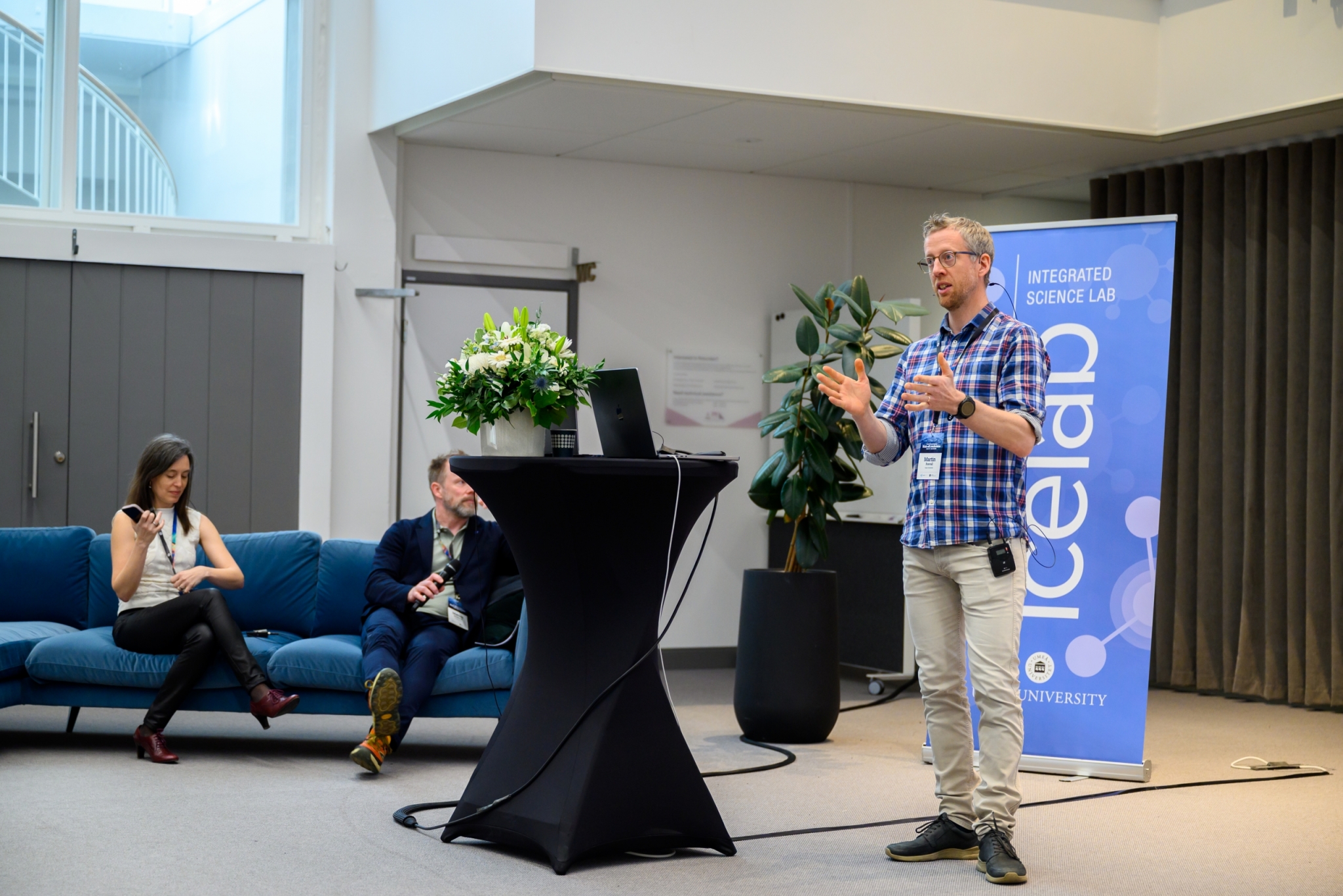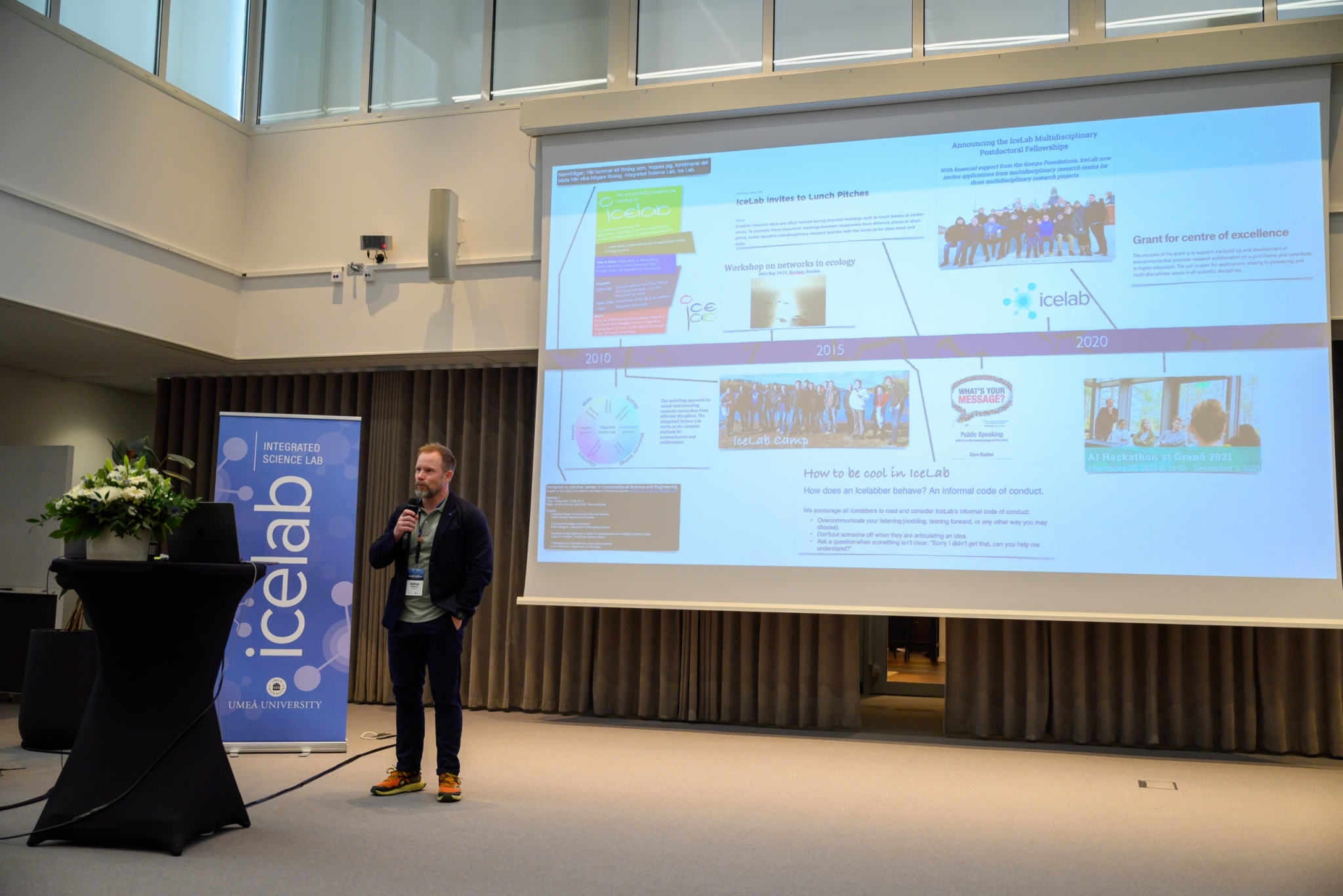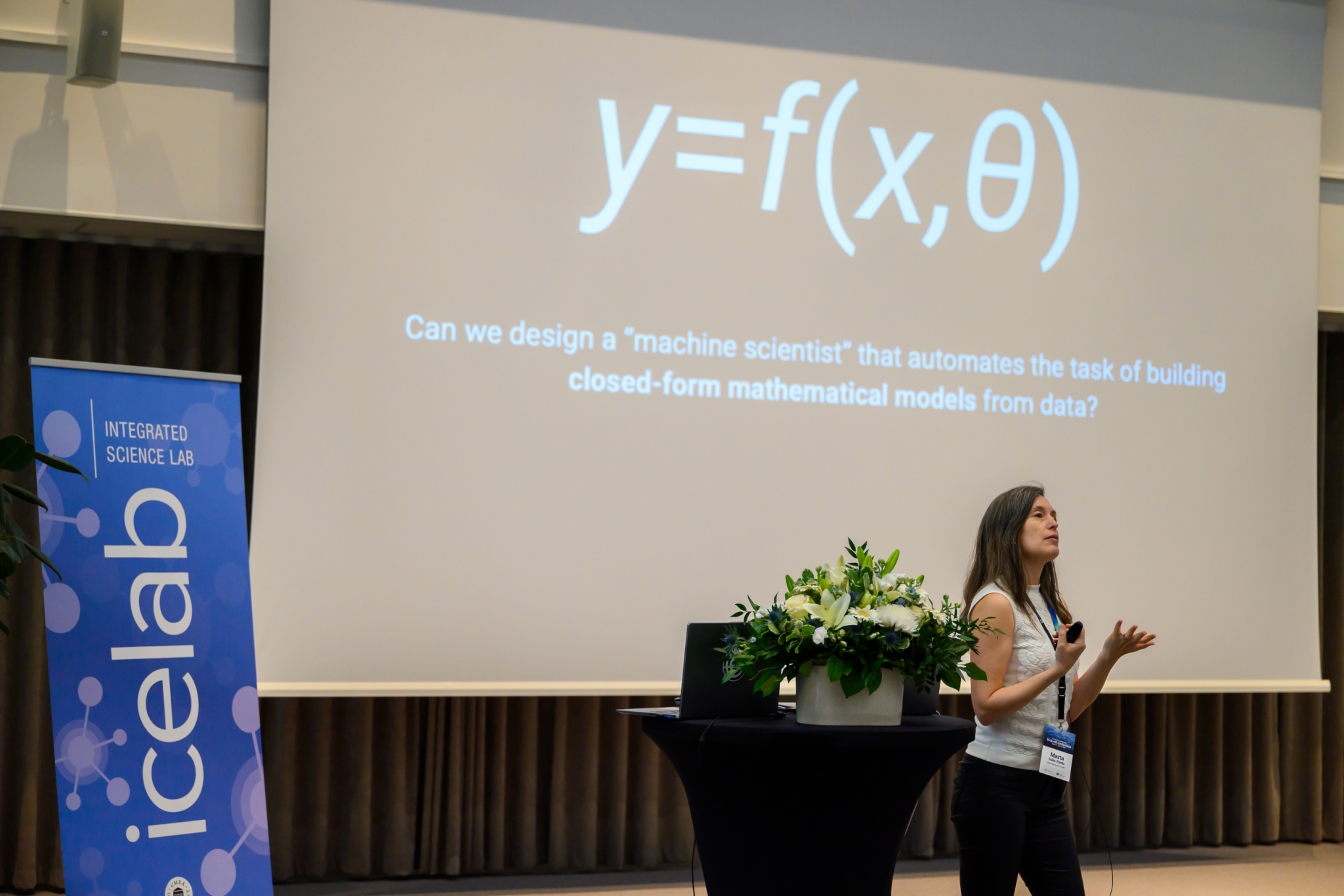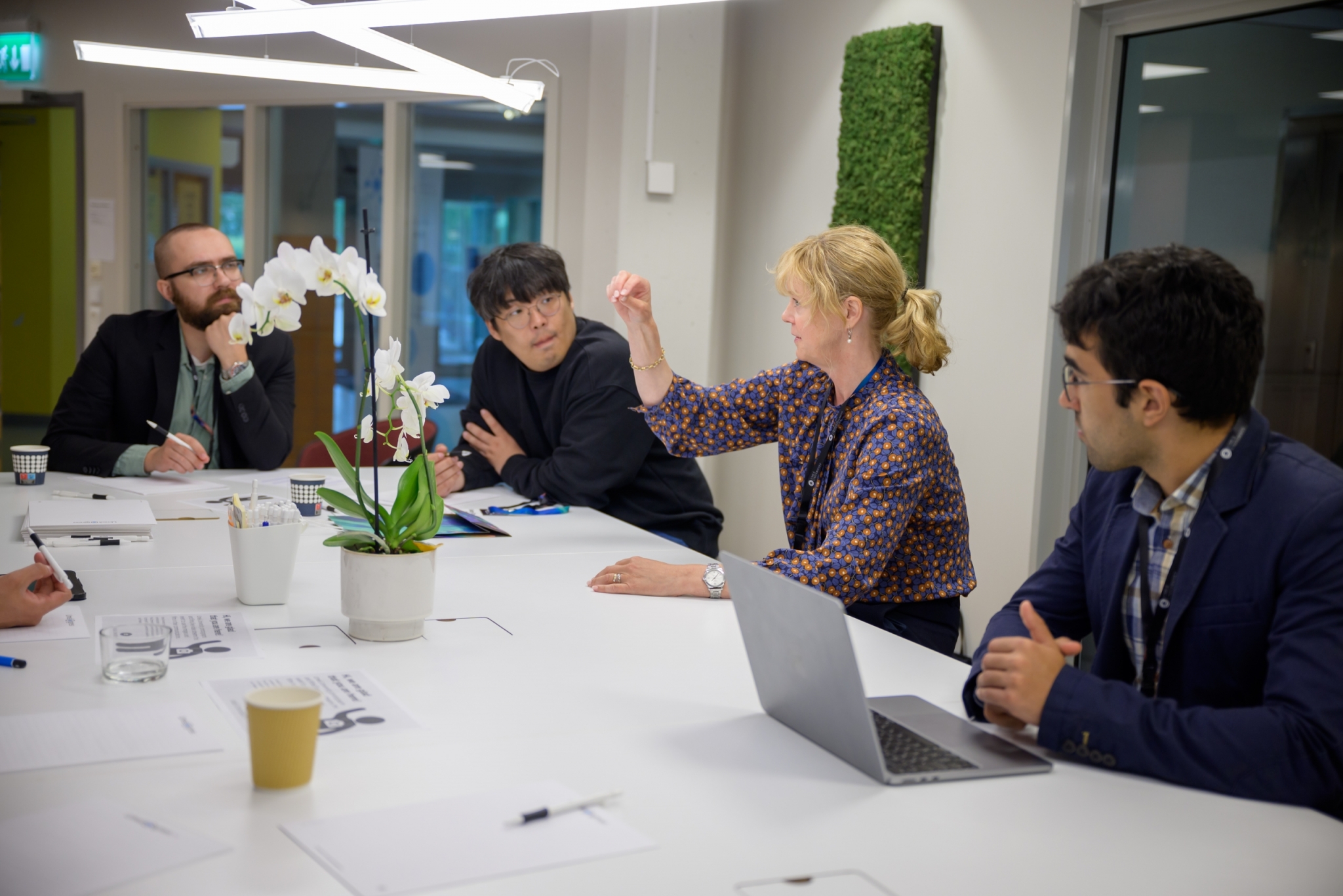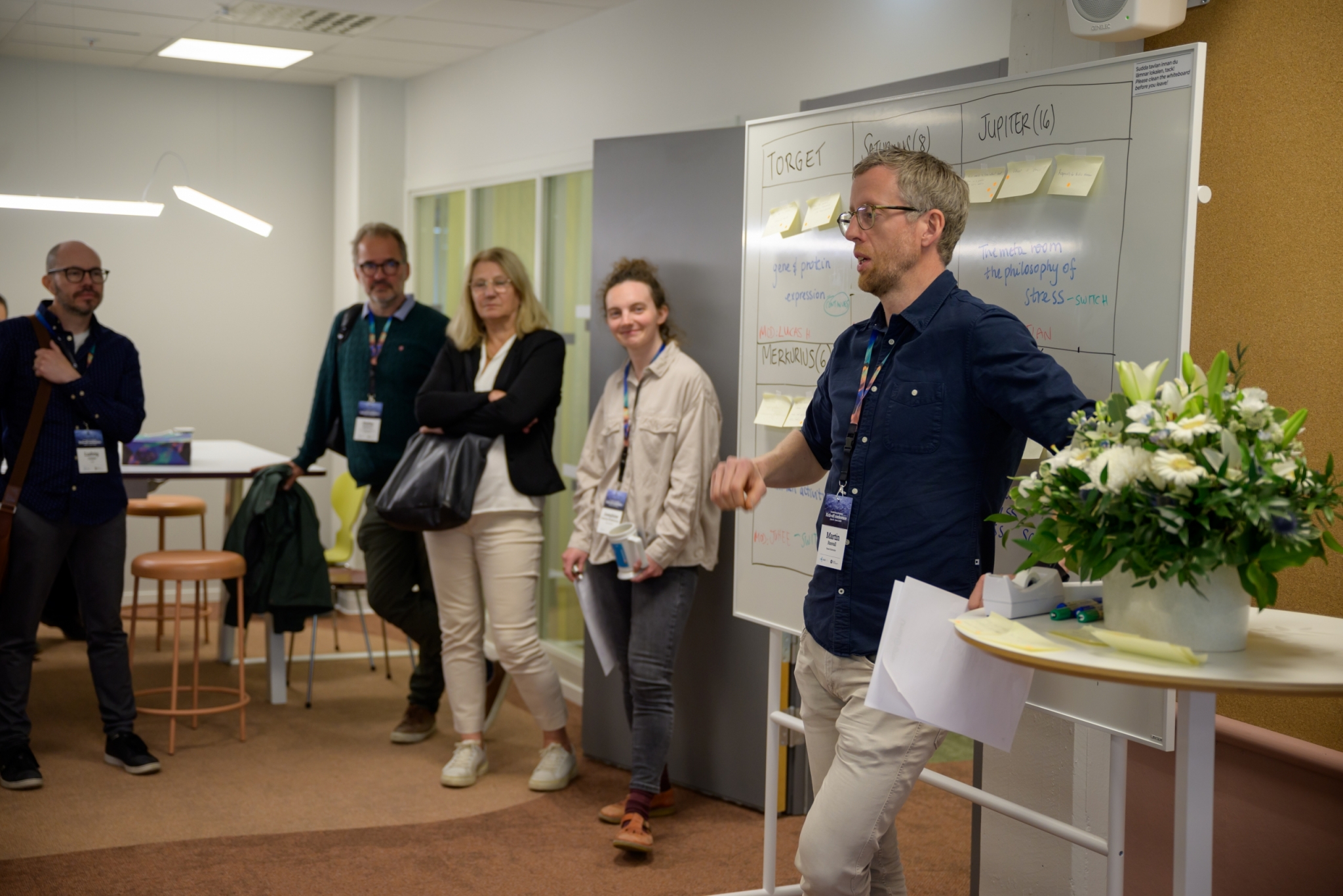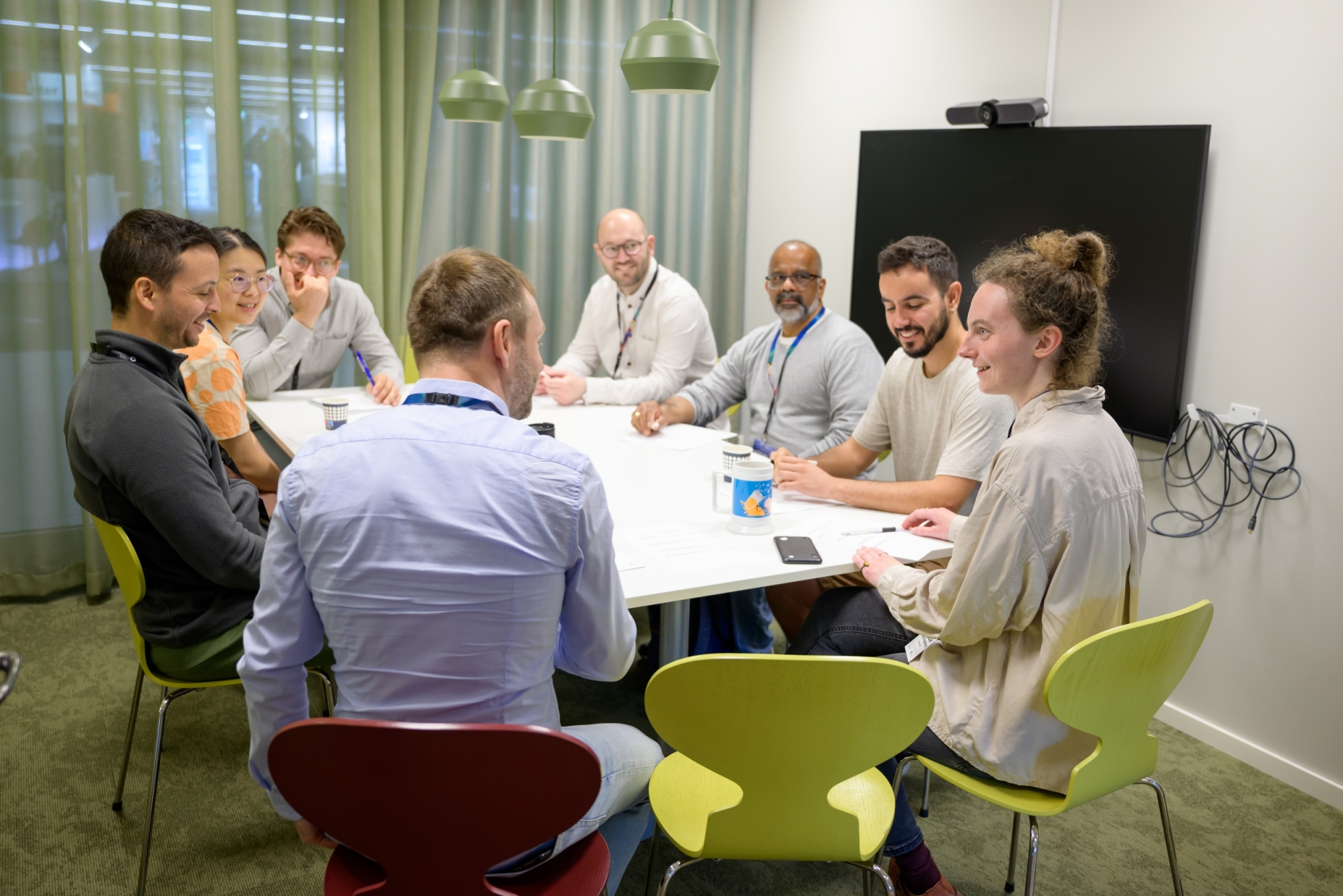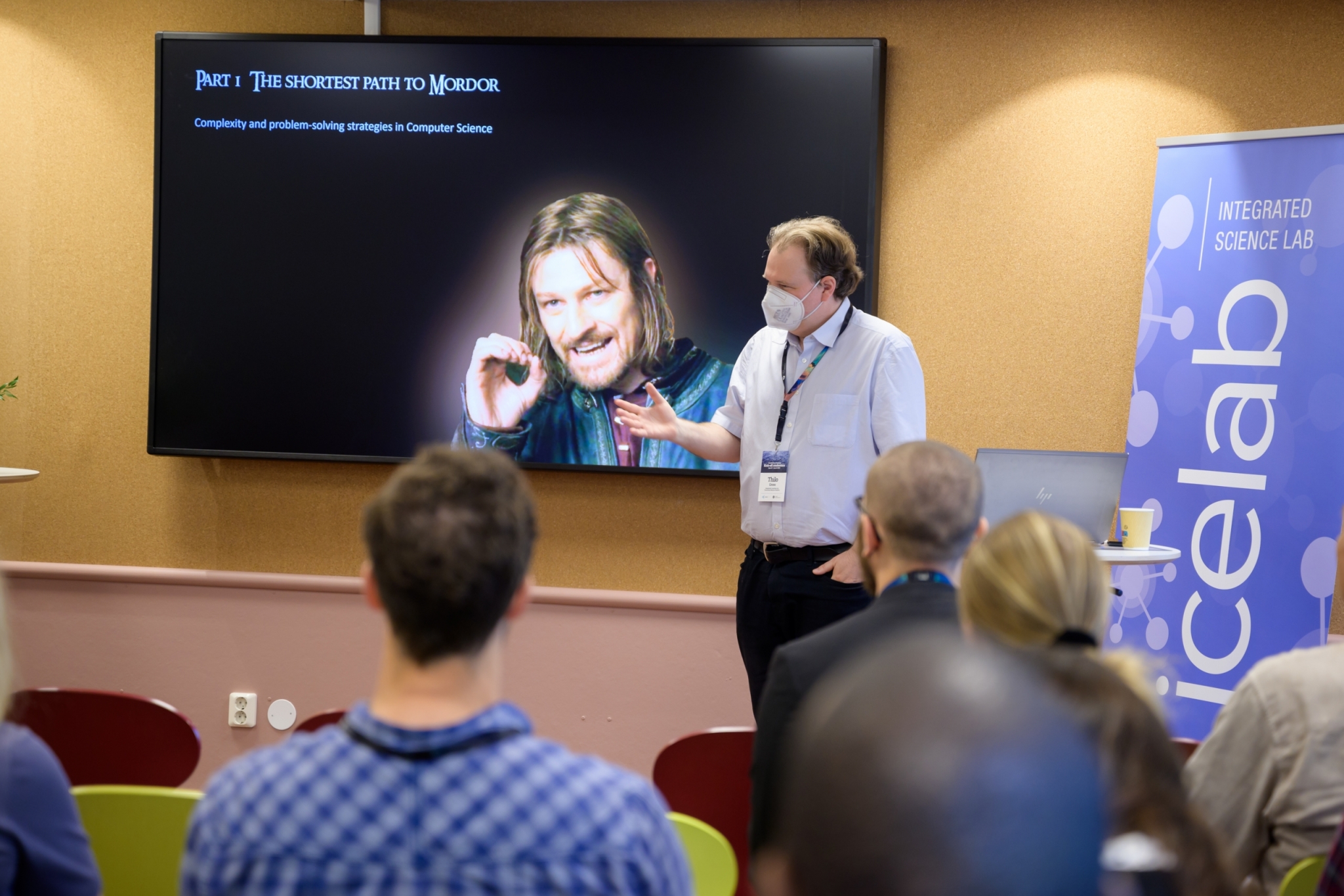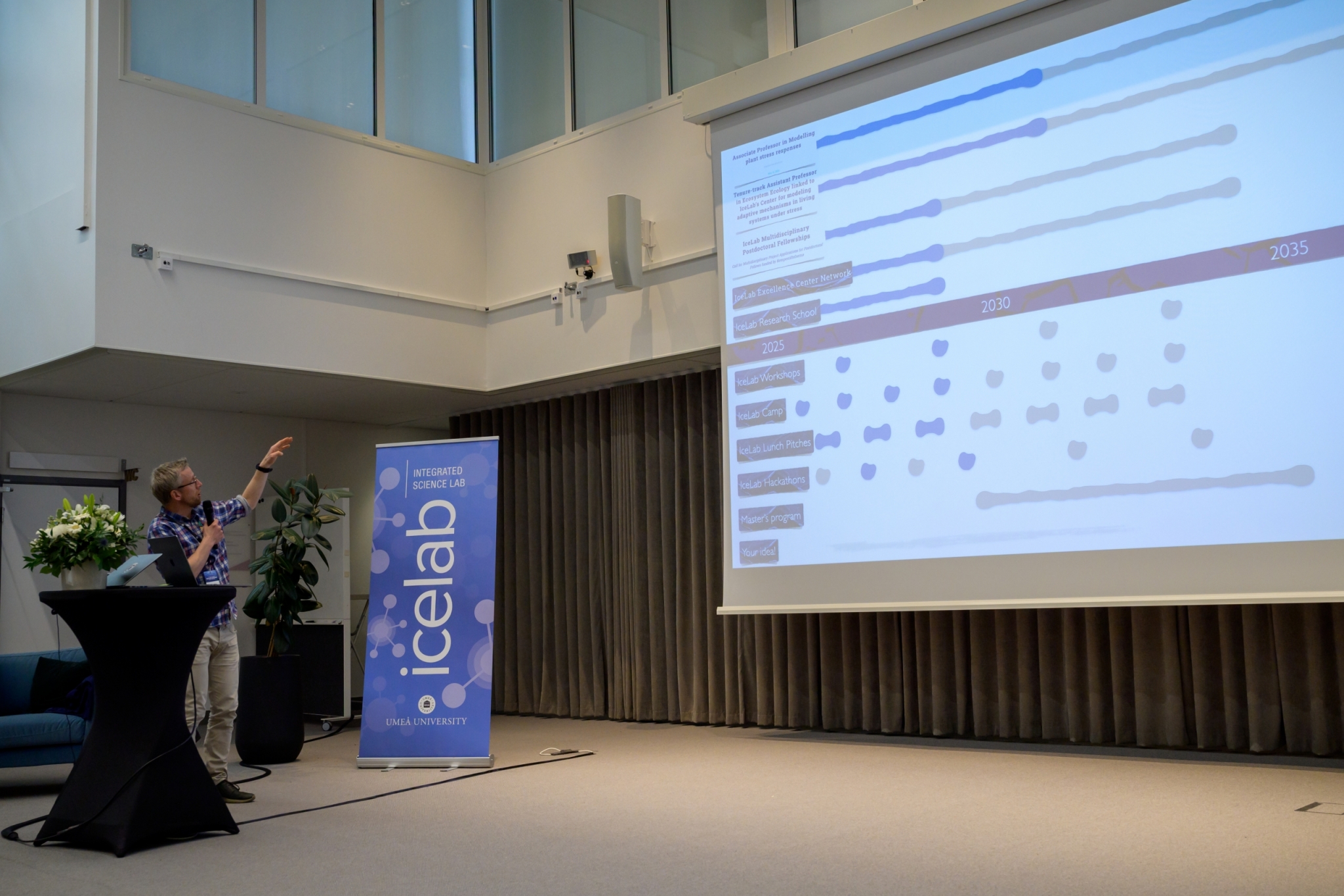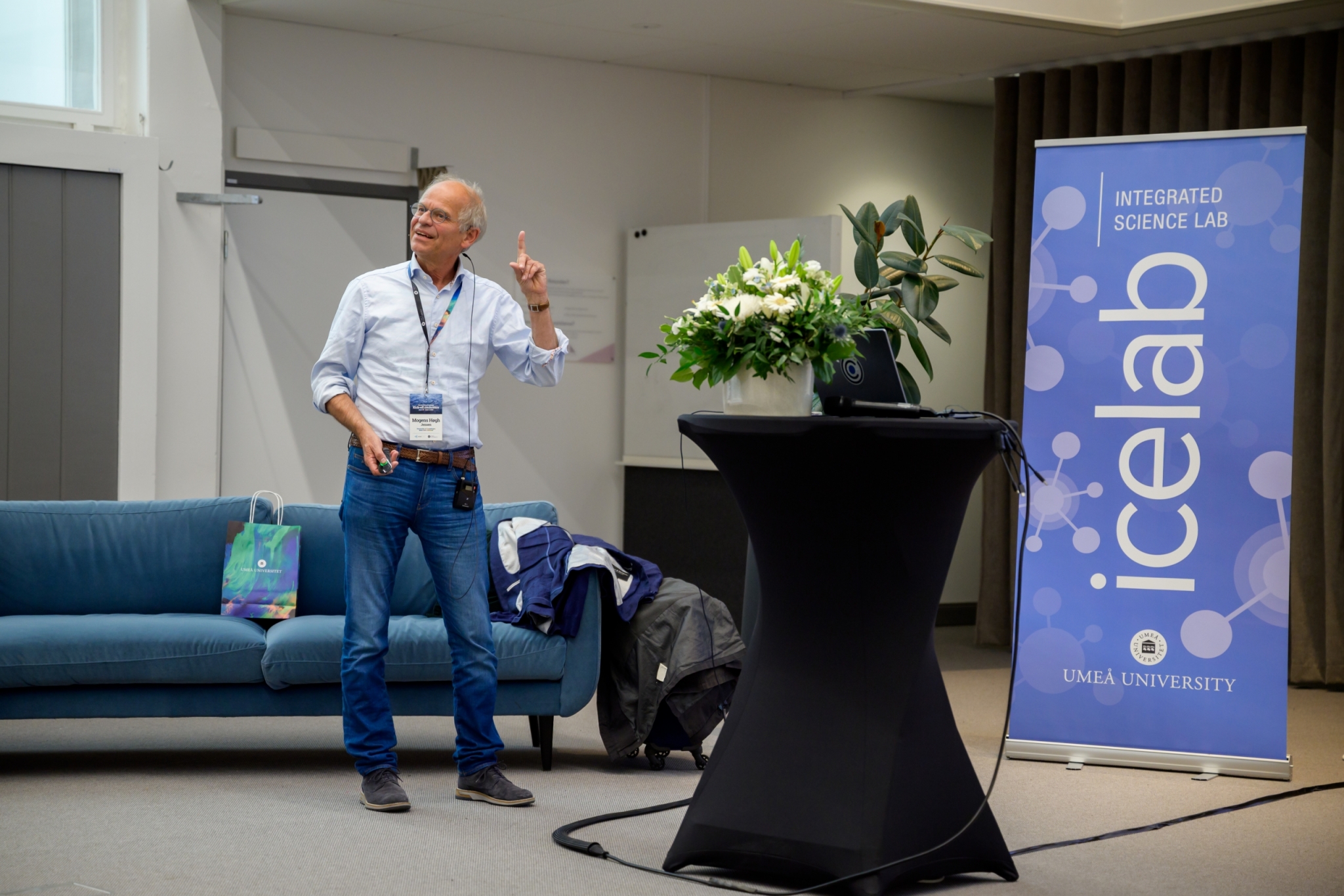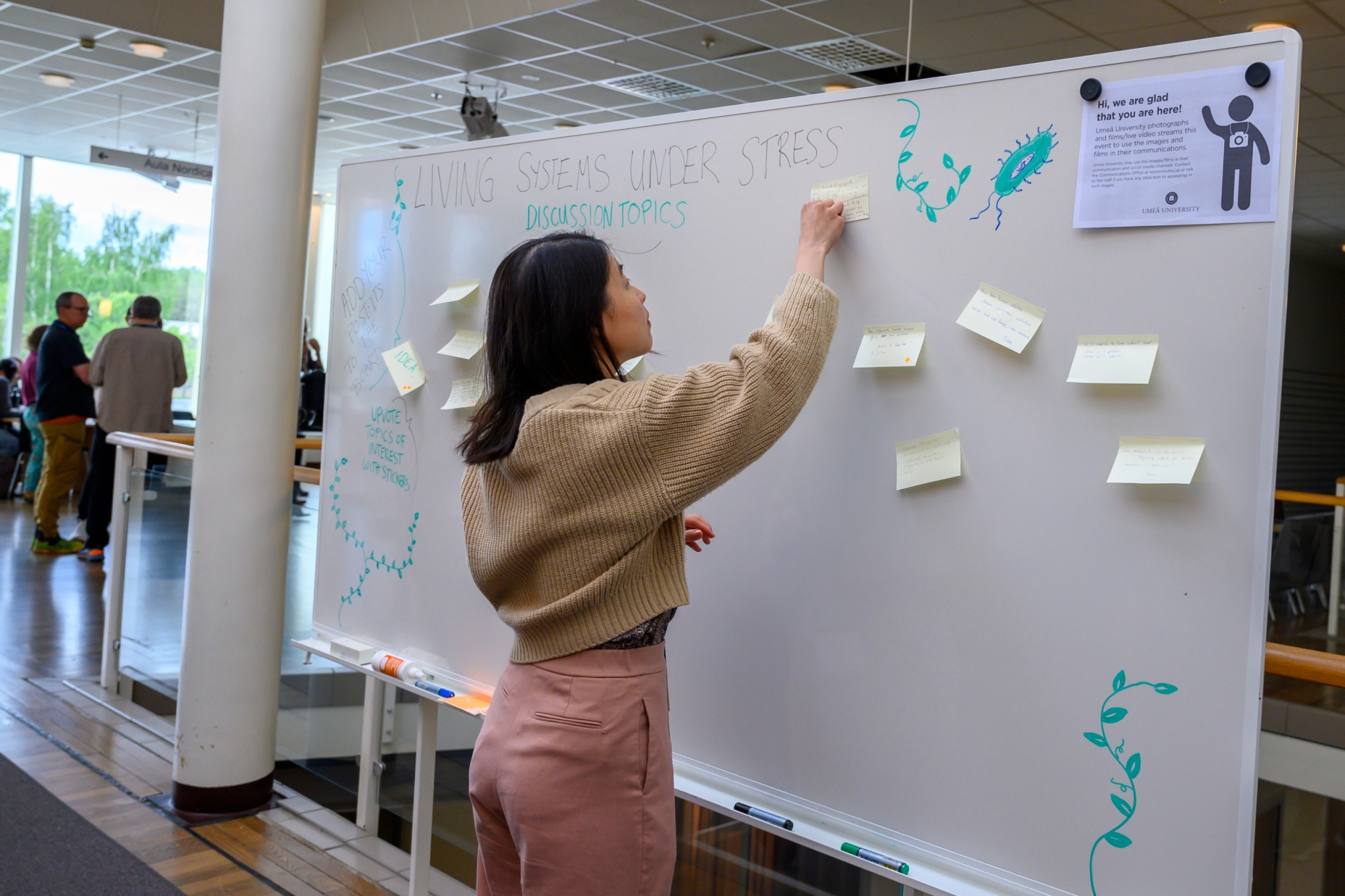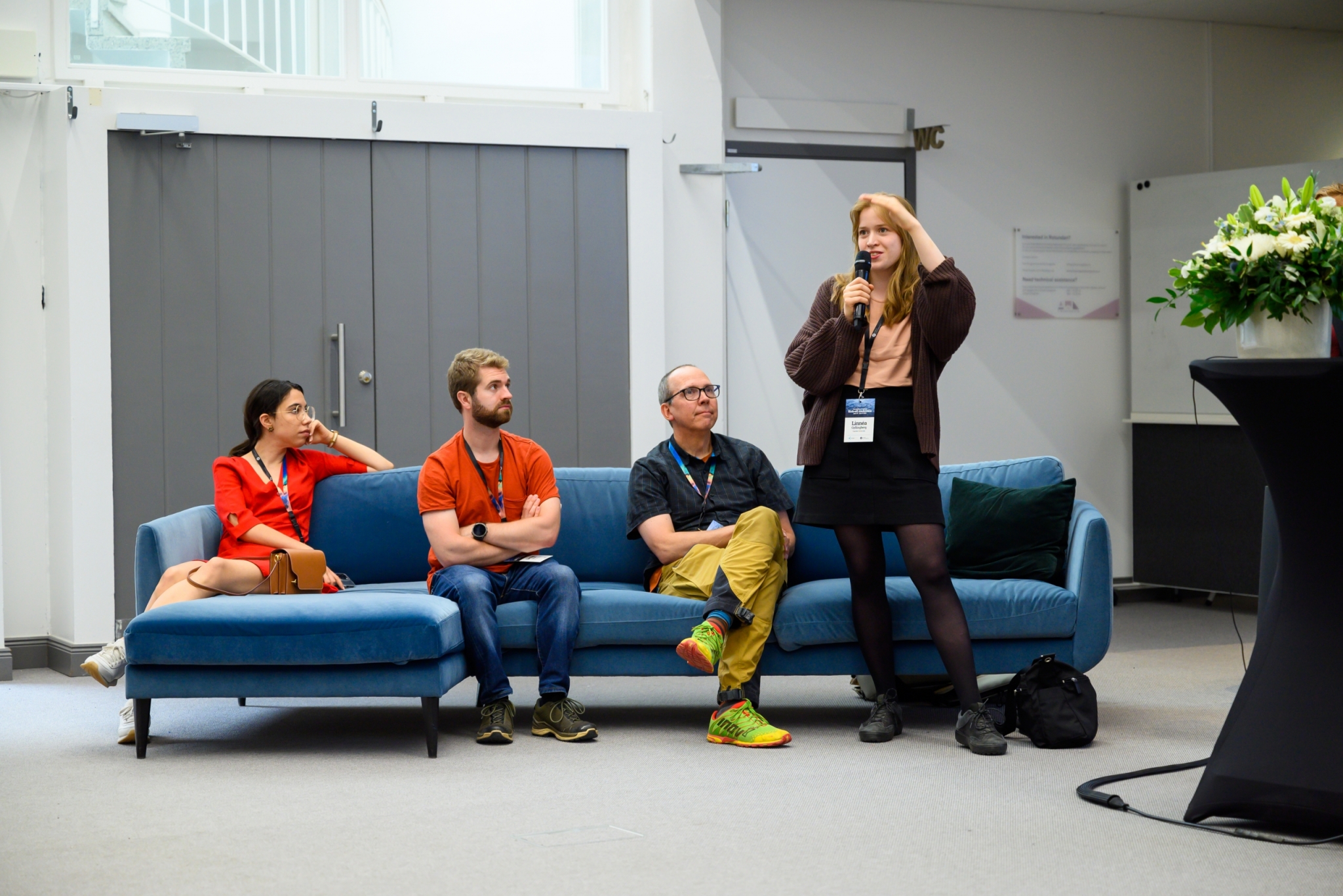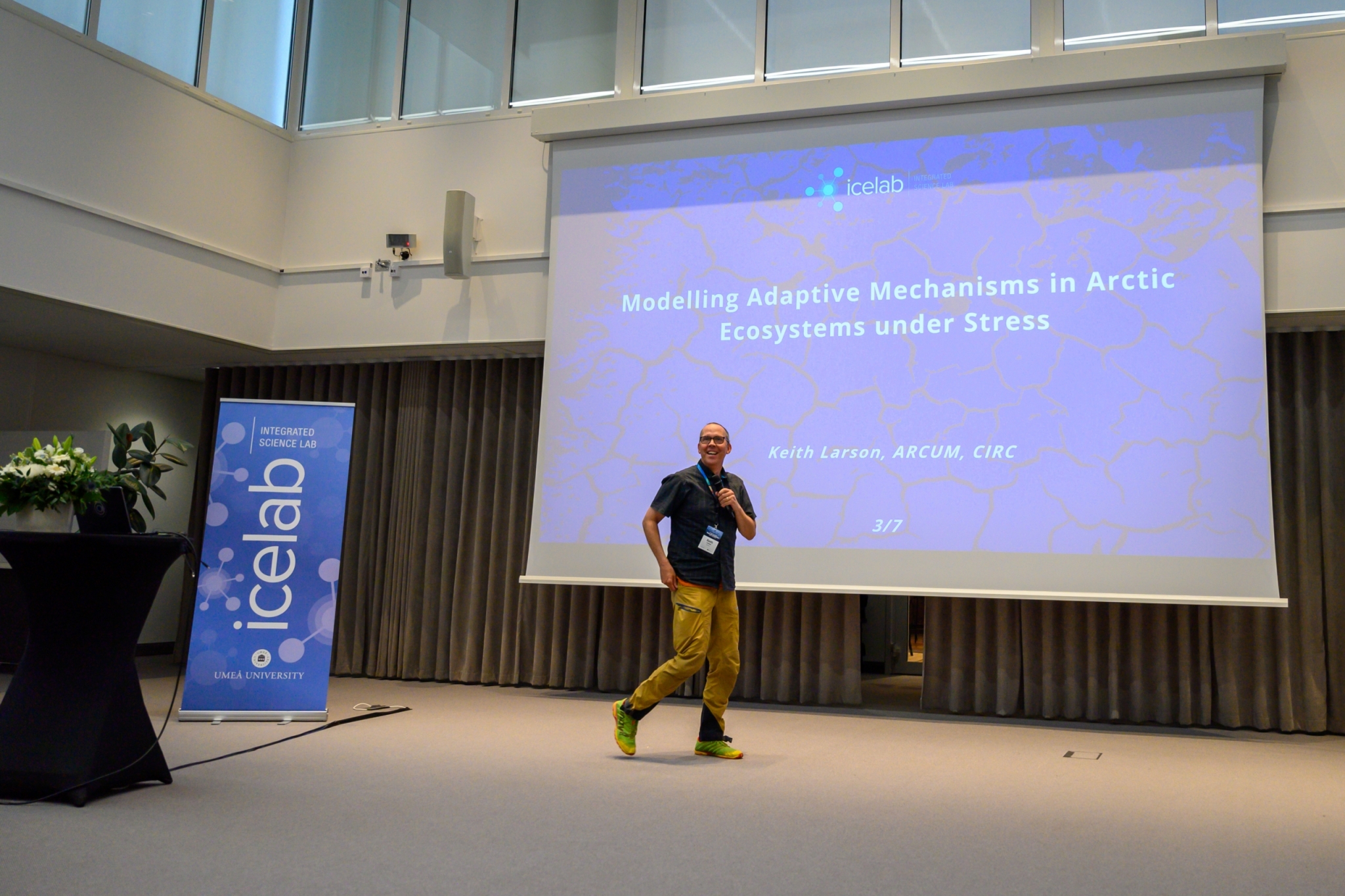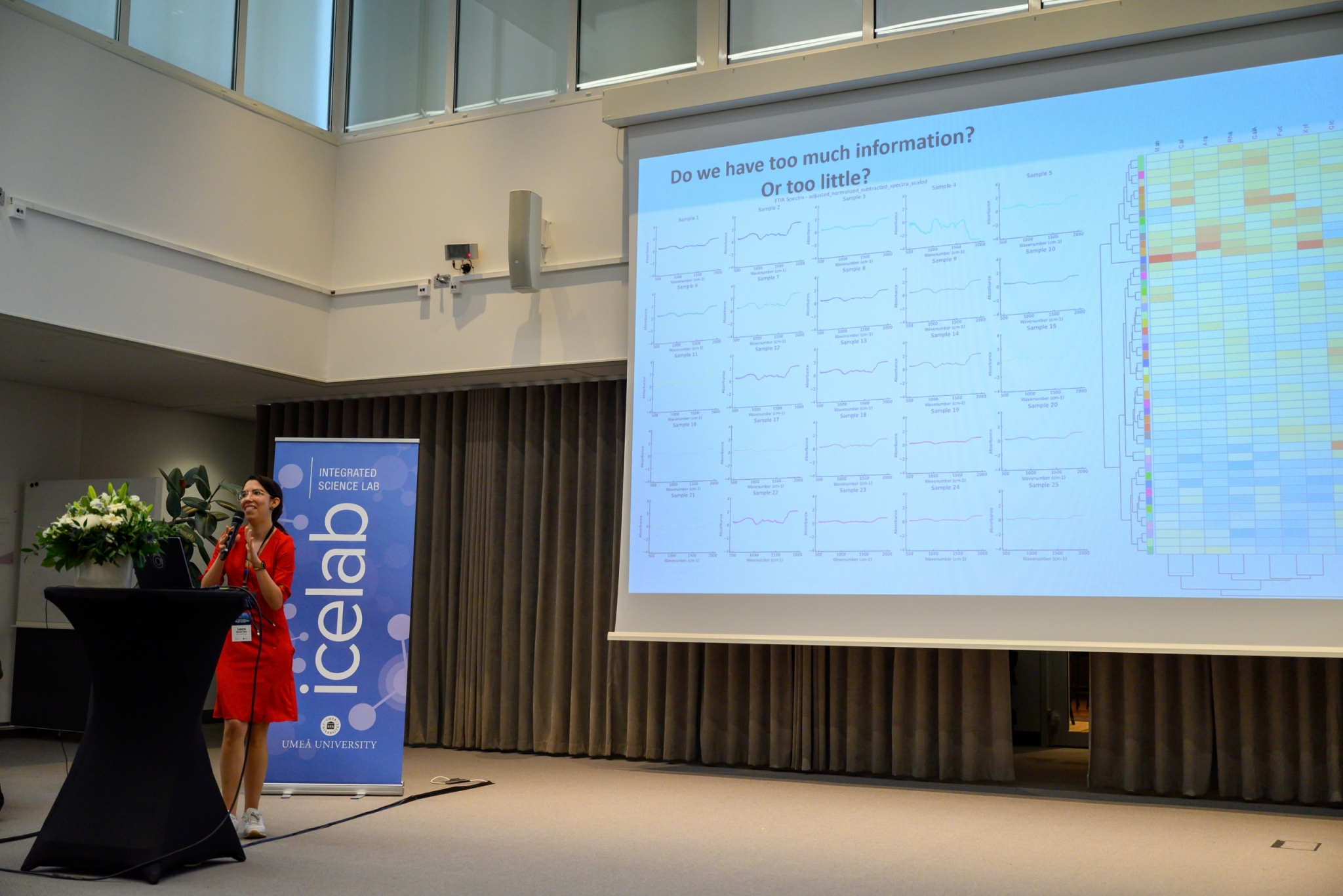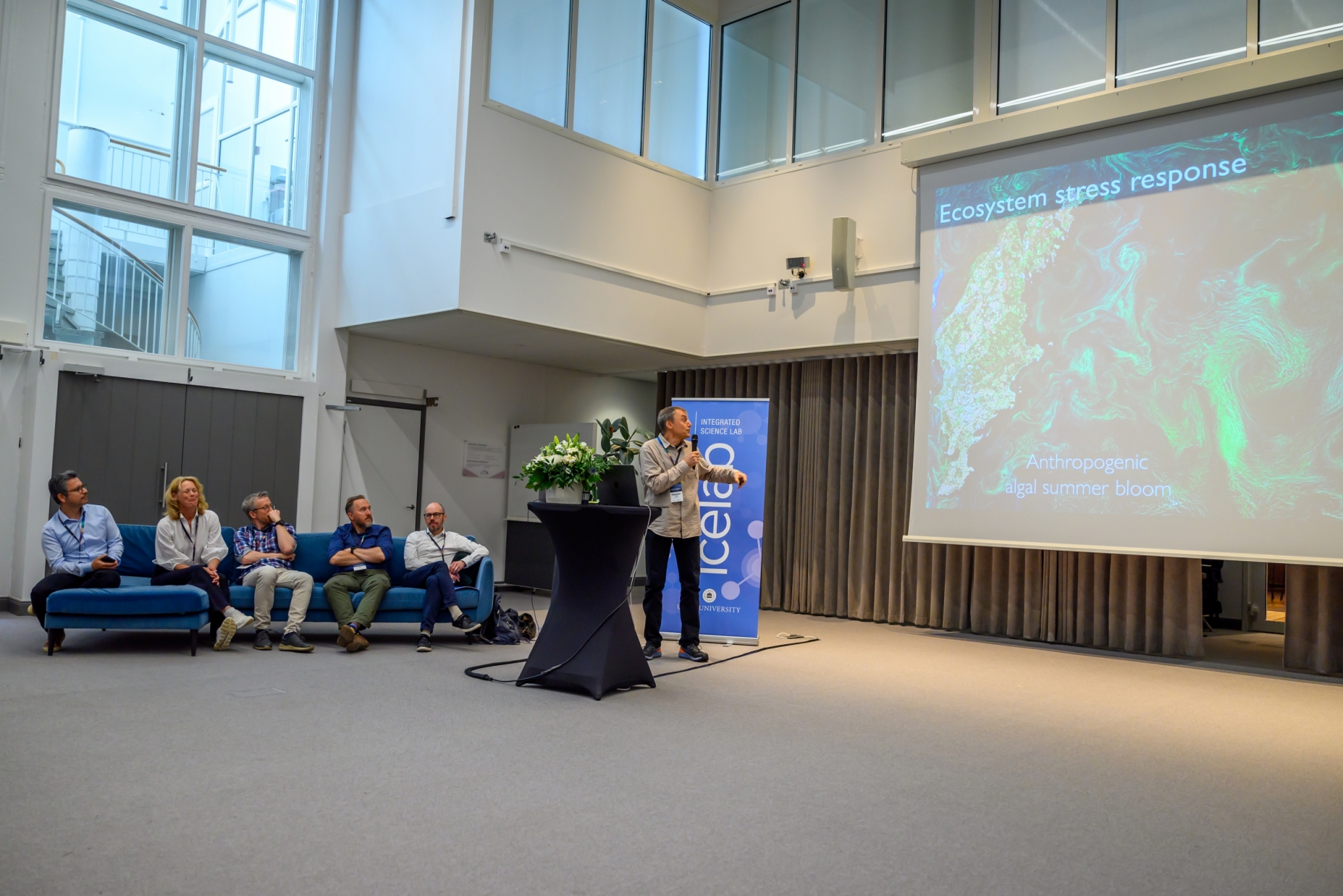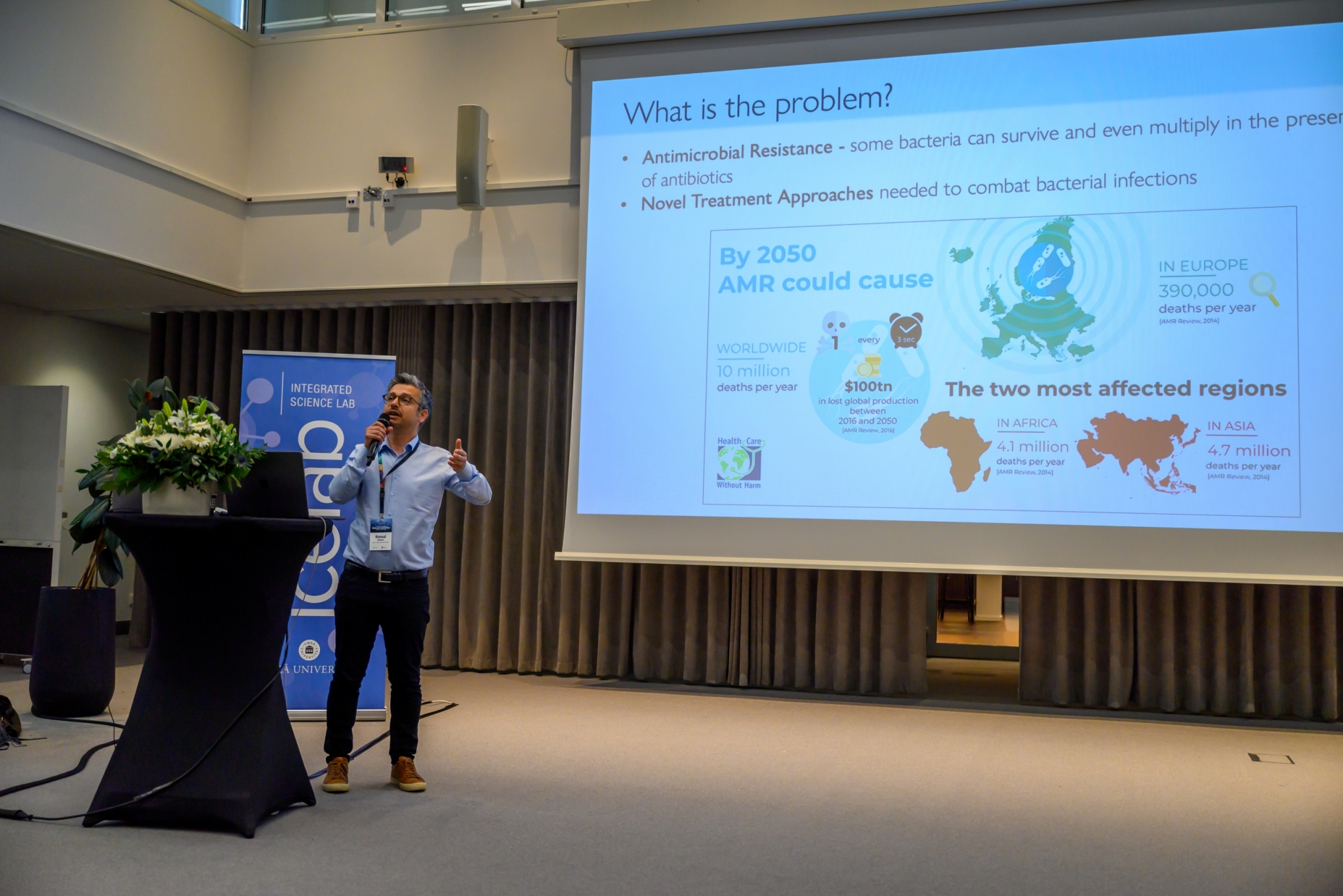IceLab kickoff conference propels stress response research
The kickoff conference for IceLab’s VR-funded Center of Excellence with support from KAW and Kempestiftelserna, held on June 10th and 11th at Umeå University, marked a promising start for the new center. Presentations highlighted common ground in diverse, complex systems and proposed new research directions for understanding stress responses in living systems
About a year after receiving the news that the Integrated Science Lab (IceLab) was awarded funding to establish one of fifteen Swedish Research Council-funded excellence centers, Stress Response Modeling at IceLab held its official kick-off conference, with over seventy participants and three international invited keynote speakers.
Mattias Marklund, Secretary General for Natural and Engineering Sciences at the Swedish Research Council, was present at the kick-off. He opened the event by describing the motivation behind the funding call and its highly competitive nature – over a hundred applications were received and only fifteen centers were granted. Mattias was delighted with what he experienced at the conference:
“I think it was an amazing opening. It’s really good to see the grant being put to good use, inspiring people to work across disciplines and focusing on a specific topic – stress responses in living systems. I thought it was especially interesting to hear about the development of the IceLab environment, and the new science they plan to do. It was really nice to see this focus on the future, not just what they’ve done up to now.”
Resistance, resilience and tipping points
What do bacterial antibiotic resistance, algal blooms in the Baltic Sea and the effect of drought on plants have in common? According to the principal investigators in the center, quite a lot. Despite their different organizational scales, as complex systems, they exhibit similar characteristics such that adaptive mechanisms uncovered in one system could help understand those in others.
How do bacterial populations recover from harmful external influences, such as antibiotics? Which attributes of a lake and its resident community make it recover from extreme events such as nutrient pulses or heat waves? What components are involved in resetting energy usage back toward growth after drought stress in plants? In their shared presentation about uncovering universal stress response mechanisms, they suggested asking questions about how different systems respond to stress reveals similarities that reflect universal behavior.
Resistance, resilience, and tipping points were frequently cited as core principles in many conference presentations, ranging from broad overviews of complex systems science to specific examples within plant, bacterial and ecosystem stress responses.
Towards the future
The conference pivoted to looking towards the future, with presentations and discussions about potential collaborative projects in stress response research.
“The main goal for the conference was to establish working groups and project ‘seedlings’ that we can nurture in the future in the Center” explained Gabrielle Beans, IceLab Coordinator.
One project that emerged from the conference was challenges in understanding how the genome of a plant, inside its nucleus, and the genome of the plant’s chloroplast can influence each other despite being physically disconnected. Åsa Strand, Professor at the Department of Plant Physiology, Umeå Plant Science Centre, and a principal investigator of the center, explains:
“Based on my experimental observations, I think the chloroplast – the organelle that controls photosynthesis – provides a positive signal required to fully activate gene expression in the nucleus. But I am not sure how that happens – so I want to model the system and get specific ideas I can explore experimentally.”
By the end of the second day of the conference, Åsa had connected with two IceLab postdoctoral fellows, Juhee Lee and Seong-Gyu Yang, who had sketched out a potential computational model to explore this question. They have made plans to follow up after the conference.
What are the next steps for Stress Response Modeling at IceLab? Martin Rosvall, director of the center and Professor in Umeå University’s Department of Physics and IceLab, sums up:
“We will take these project ideas forward – in hackathon-style retreats to develop them, with our Kempestiftelserna-funded postdoc program and our Wallenberg-funded upcoming PhD call linked to the doctoral research schLool program we are developing.”
Martin also encouraged interested researchers to propose their own activity ideas and recommend international researchers for visits through the IceLab excellence network initiative.
One such international researcher, an invited keynote speaker at the conference and a member of the advisory board for the center, was Marta Sales Pardo, Professor at the Universitat Rovira i Virgili, Spain. Her presentation on creating a ‘machine scientist’ was very well received, and she greatly enjoyed her time in Umeå:
“The kickoff was very well organized. I had the opportunity to talk with many young researchers and other principal investigators and I really enjoyed my time in Umeå visiting IceLab. I am looking forward to seeing how the center progresses moving forward.”

